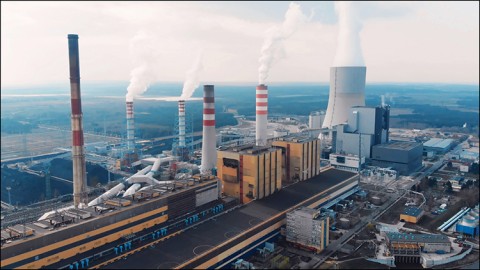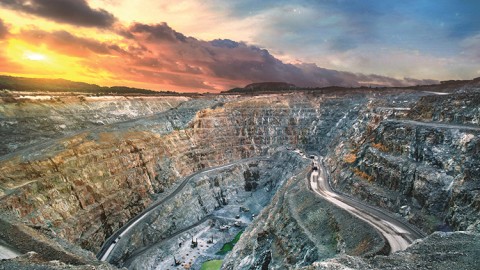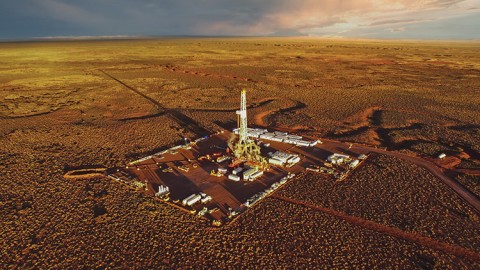Many companies around the globe have had to transition to new methods of operation in order to comply with social distancing and COVID rules as a result of the global pandemic. Workers in the oil and gas industry believe that the events of 2020 have now ushered in a new standard for the industry, with 86% claiming that this is the current case or will be in the immediate future.
As per the 5th annual Global Energy Talent Index (GETI), approximately 78% of oil and gas employees are less confident in their employment than they were a year ago. Furthermore, two-thirds believe the COVID-19 pandemic is to blame for the unease. Additionally, 77% of hiring managers are concerned that their workers’ positions are less available than they were a year before. Such concerns emerge in the context of predictions that global oil demand will grow in 2021, but not enough to exceed 2019 levels. The oil and gas industry is no stranger to economic downturns, but COVID-19’s effect, combined with a shift in job demand, puts an emphasis on the jobs that are currently sought after.
Overview
While the media may concentrate on the lack of employment in conventional oil and gas jobs, we have seen how the energy revolution presents not only obstacles but also opportunities for people of all ages to help businesses evolve, innovate, and succeed. Oil and gas experts have transferable capabilities that are crucial in planning the energy grid of the future, thanks to their extensive technological training, on-the-ground organisational know-how, and experience collaborating with a dynamic group of professionals. An HR specialist in the oil and gas field, who preferred anonymity, stated that “it is now more popular for oil and gas employees to have new skills that make them more flexible and have the ability to work in new jobs or new departments. It is not about hiring new experts for new jobs, but about having [existing] employees develop their skills and switch from a job that is not needed anymore to a more popular job in these [changing] times.”
Oil and gas engineers will have more opportunities as the energy transition accelerates. The energy revolution is moving at a quicker pace than any market watcher might have predicted. Pandemic-driven growth and pricing fluctuations, as well as the climate issues, have placed the oil and gas market under a lot of pressure to move to a climate-friendly future model. There are evident fluctuations in the oil and gas job market, especially over the past year or so. As a matter of fact, here are several reasons as to why there are shifts in the job market; such as the advances in technology, HSE procedures, financial limitations, etc.
New Niches
There are 6 new job niches that are hiring, despite the fact that the oil and gas industry is letting go of various employees. These eagerly sought-out oil and gas job niches include: methane management, decommissioning oil and gas wells, carbon capture and storage, converting refineries, new materials innovations, and the geothermal sectors.
With regards to methane management, the annual methane emissions from the oil and gas industries are identical to the climate impact on all of the world’s road vehicles and freight vehicles in a year, with 84 times more efficacy in the immediate future. As a result, reducing methane emissions is one of the most important aspects of reducing climate change’s impacts. Through increased control and examination of methane emissions, environmental engineering will be in high demand, as will methane field experts for on-the-ground analysis and tracking, and computer scientists who can interpret data from ongoing analysis and build prediction models to quantify requirements and to prevent flaring.
In the field of decommissioning wells, multitudes of unofficially registered orphan oil and gas wells are currently posing environmental hazards to communities around the world. Orphan wells are wells that have been financially unviable over time and have been left unattended to. The need to effectively fix orphan wells allows operators’ and oilfield service companies’ well-engineering and well-decommissioning expertise to be very useful.
Furthermore, to make carbon capture and storage viable at large and resolve questions about the stability of capture and leakage, a great deal of ingenuity is needed. Geologists and well engineers have the advanced expertise and knowledge gained from previous research and development work that would be crucial in solving technological difficulties and lowering the cost of stable carbon storage in reservoirs.
Additionally, firms are looking at upgrading refinery activities and transforming refineries to develop new resources, such as green diesel and hydrogen; this is as a result of the transition to electric vehicles and need for alternative fuels in automobiles, aircraft, and residential and commercial heating. Engineers can assist with process efficiency and quality management in potential refineries to guarantee that refining goods have a low environmental and health impact.
Consequently, with a rise in awareness of the life cycle environmental and health impact of such petroleum products, demand for bio-based materials and other substitutes that have smaller environmental emissions and can be reused or recycled more effectively is increasing. Material science experts facilitate health and safety tests to make sure that modern components not only meet performance expectations but also avoid pollution.
Finally, drilling and reservoir engineering are highly technical oil and gas expertise that cost businesses thousands to educate a single engineer in. Such skills are generally useful in the rising field of geothermal energy, offering an alternative for businesses to focus their engineering workers in this path.
The Way Forward
As investors and government institutions alike search for safer and environmentally friendly fuel options, the pandemic has signalled a significant change for the oil and gas industry. Many would find jobs that take advantage of their expertise, experience, and expertise with generations of oilfield technology growth and advancement outside of conventional oilfield operations. Not only will these graduates be able to secure decent, steady careers, but they will also be able to put their talents to use in innovative unique ideas to help drive the energy transformation.
In the near future, energy transformation policies will depend heavily on digitalization. Engineering technologies and strategies are improving, allowing for more remote operations and technological coordination, as well as actively participating in establishing near-term pollution targets, monitoring transparency through industries, and more. Employees in the oil and gas sector are now among the best paying in the region, but the number of those polled say they are less confident in their positions than they were a year earlier, as the transition to low-carbon renewable resources has reduced expenditure in the industry. To conclude, the oil and gas industry and the predicted job niches are expected to outlast other job niches.








